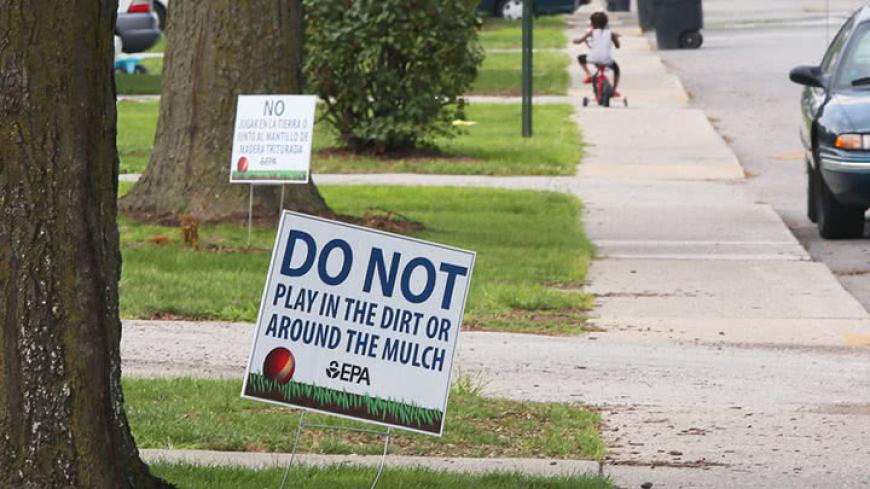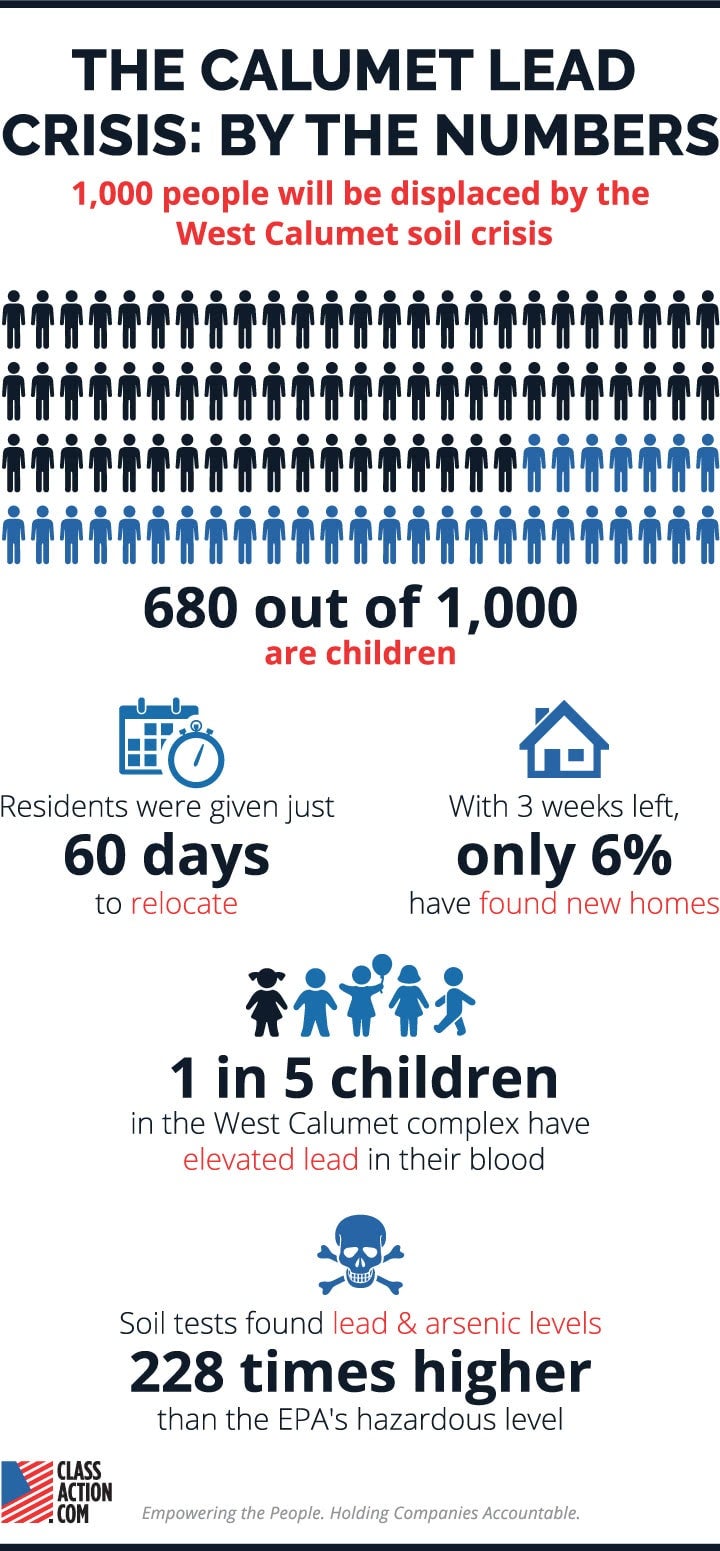5 FAQs About the Calumet Lead Crisis

1. Which parts of East Chicago have been affected by the Calumet lead crisis? How broad is the contaminated area?
The contamination site encompasses the Calumet neighborhood of East Chicago. If you live outside of that neighborhood—in Whiting, for example—we haven’t been made aware of any environmental issues as yet.
However, there are 39 other areas in Indiana that have been tainted by hazardous waste and therefore designated “Superfund” sites by the Environmental Protection Agency (EPA). You can find a list of these locations here.
2. What should I do if I live in Calumet?
If you live in the West Calumet Housing Complex, you must relocate by November 30, 2016. The complex and Carrie Gosch Elementary School comprise Zone 1 of the EPA’s cleanup efforts.
If you live in another part of Calumet, the EPA is now testing the soil and determining the best course of action. The Times of Northwest Indiana reports: “EPA has started to release soil sampling results to residents in zone 3, the eastern part of the neighborhood. EPA will begin cleanup at the most contaminated properties this fall, and work is expected to continue next spring.”
You should also receive free blood testing at the East Chicago Health Department or at Carrie Gosch to determine the lead levels in your blood and your children’s. According to Jennifer O’Malley, director of public affairs for the Indiana State Department of Health, anything above 5 micrograms per deciliter (5 μg/dL) is considered elevated.

(Infographic sources listed at bottom of page.)
3. Who is most vulnerable to lead poisoning?
"Children age six and under and pregnant women are the most vulnerable populations because of the way the brain develops,” Ms. O’Malley tells the Public News Service. “The brain actually starts developing in the womb, so we are most concerned about those younger children and pregnant women."
4. How can I reduce my children’s exposure to lead?
Dr. Richard Troast, PhD—founder of Troast Environmental Consulting—offers the following advice for curbing the risk of lead poisoning:
Shortening the period of exposure may reduce the toxic effects. This can be accomplished by removing lead sources within the household. Lead paint can be removed, lead dust removed through intensive cleaning, and lead in soil through the use of ground cover to minimize the release of the dirt and lead into the home. Parents can move into lead-free residences. Generally, homes built after the ban of lead based paints [in 1978] will be safer than homes built prior. However, when in doubt, there are commercial certified contractors available to test the home.
Additionally, the federal Agency for Toxic Substances and Disease Registry (ATSDR) advises the following:
- Don’t let children play in dirt or mulch
- Wash children’s toys regularly
- Wash children’s hands after they play outside
- Remove shoes before entering homes
- In Superfund sites like West Calumet Housing Complex, do not disturb mulch or dig/garden in yards
5. What can I do if a family member has an elevated level of lead in his or her blood?
See Question #4 for ways to reduce present and future lead exposure.
The Mayo Clinic states, “A level of 5 mcg/dL or higher indicates your child may have unsafe levels of lead in their blood and should have their blood tested periodically. If levels become too high—generally 45 mcg/dL or higher—your child should be treated.”
Cases in which the lead level is 45 μg/dL or higher may require intravenous drug treatment like ethylenediaminetetraacetic acid (EDTA).
ClassAction will continue to investigate this crisis and keep you informed as news breaks. If you have been personally affected by the Calumet soil crisis, please feel free to share your story in the Comments section below this article.
Infographic sources/further reading:


